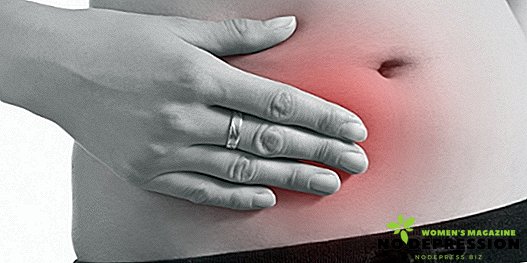Pregnancy is an exciting time for every woman. In order for all 9 months to bring joy, accompanied by a feeling of pleasant expectation, it is imperative to plan a pregnancy. Both parents should take an active part in this process, this allows to avoid negative consequences in the future.

Psychological preparation of couples for pregnancy
The birth of a child is an important event in the life of a married couple. A special role is played by psychological readiness for such a responsible step, and it is best to begin even before the onset of pregnancy. A competent approach to such an important issue as pregnancy involves consulting with obstetrician-gynecologists and psychologists.
 A man and a woman should be in advance ready to change their social status internally. Previously, they lived only together, and after the birth of a child, they become family in the full sense of the word. Expectant mothers need to be as calm and happy as possible. The fact is that stressful situations can cause hormonal disorders in the body and vascular diseases. Therefore, women should not succumb to the influence of external stimuli and calmly relate to everything happening around.
A man and a woman should be in advance ready to change their social status internally. Previously, they lived only together, and after the birth of a child, they become family in the full sense of the word. Expectant mothers need to be as calm and happy as possible. The fact is that stressful situations can cause hormonal disorders in the body and vascular diseases. Therefore, women should not succumb to the influence of external stimuli and calmly relate to everything happening around.
It is necessary to prepare psychologically for the birth of a child from 28-30 weeks of pregnancy, because by the 37-38 week the condition of the woman will already be fixed and it will be quite difficult to change it. It is necessary to help the couple to acquire important knowledge about the development of the child, the role of parents in this process and prepare the woman for the upcoming birth.
Pregnancy planning methods
A woman’s natural pregnancy planning is based on determining the time when ovulation occurs. The probability of a successful conception increases on the day the egg leaves the ovary and 2-4 days before. Male reproductive cells retain the ability to fertilize for 2-4 days after entering the female genital tract. In the event that fertilization does not occur, then after 24 hours the egg cell dies
There are the following methods of pregnancy planning:
 The calendar method involves periodic abstinence from sexual intercourse, depending on the menstrual cycle. Using this method, it is possible to determine the most favorable period for conception based on the calculation of the duration of the menstrual cycle over the past 12 months. However, this method is considered not sufficiently effective, since ovulation can occur earlier than the deadline or, conversely, linger.
The calendar method involves periodic abstinence from sexual intercourse, depending on the menstrual cycle. Using this method, it is possible to determine the most favorable period for conception based on the calculation of the duration of the menstrual cycle over the past 12 months. However, this method is considered not sufficiently effective, since ovulation can occur earlier than the deadline or, conversely, linger.- The temperature method of pregnancy planning is the determination of the most favorable day for conception using the graph of changes in body temperature. For 2-3 cycles, a woman should measure the basal temperature in the vagina or rectum with the same thermometer, without getting out of bed. The fact is that in the days of ovulation, it increases, and this happens under the influence of progesterone, which is excreted in the corpus luteum. The day of the release of the female sexual egg from the ovary is usually determined by the lowest temperature.
- The Billings method is an ovulation technique that is based on studying the nature of mucous secretions from the cervix. Usually, before ovulation, the mucus becomes light, transparent and viscous and resembles raw egg white. On other days, discharge from the genitals is viscous, scanty and with a yellowish tinge. Ovulation usually occurs 24 hours after the appearance of such specific mucus.
Married couples who want to conceive a girl are recommended to have sex 2-4 days before ovulation. Those who want to become parents of a boy need to have sexual intercourse on the day of ovulation
What examinations need to pass expectant parents

Despite the fact that the woman is carrying the child, both parents should prepare for pregnancy. Father's health plays an important role, therefore, even before conception, a married couple should undergo the following examinations:
- general blood and urine analysis;
- biochemical blood examination;
- determination of blood group and Rh factor;
- blood test for infections.
In addition to the above tests, when planning a pregnancy, the expectant mother needs to do other research.
The following procedures are required:
- a blood test for sugar helps diagnose diabetes and other disorders of carbohydrate metabolism.
- a coagulogram determines blood coagulation rate, which is considered an important parameter;
- smear analysis of flora determines the presence of pathogenic microflora and helps to assess the condition of the uterine mucosa;
- PCR examination of the scraping from the cervix for the presence of herpes, mycoplasma, ureaplasma and chlamydia;
- cytological examination of scraping from the cervix of the uterus allows you to determine in the material pathologically changed cells;
- analysis for antibodies to staphylococcus and Escherichia coli.
In addition, there are additional tests that can be assigned to a woman when planning a pregnancy:
 determination of the level of hormones in the blood;
determination of the level of hormones in the blood;- research on antibodies to phospholipids;
- analysis of antibodies to chorionic gonadotropin.
The main thing for a man in preparing for paternity is the identification and treatment of all infections present in the body. Be sure to conduct a PCR study of secretions from the urethra to determine chlamydia, mycoplasmosis, ureaplasmosis and cytomegalovirus. It is not allowed to plan pregnancy in the presence of STDs, since even with successful conception they can adversely affect the health of the child.
In addition to basic research, a man may be assigned additional procedures:
- spermogram is performed to diagnose infertility;
- MAR-test allows to determine the presence of anti-sperm antibodies, immunoglobulins, attacking spermatozoa;
- the study of prostate secretion allows you to determine the inflammation and the presence of infections in men, which can cause infertility;
- analysis of hormones determines the body's ability to produce healthy sex cells in the required amount.
Serious attitude to planning pregnancy allows you to avoid many problems in the future.
Vaccinations in preparation for pregnancy
When preparing for pregnancy, a woman is recommended to be given the following vaccinations:
- Against rubella. Rubella vaccine is a live virus, so vaccination is given once without re-vaccination. After vaccination when planning pregnancy, immunity from a woman through the milk is transmitted to her baby. It should be remembered that vaccination should be done 2 months before the onset of conception.
- Hepatitis vaccination. Vaccination is carried out in three steps: the first - on any selected day, the second - in a month, and the third - after half a year after the first.
- Vaccination against tetanus and diphtheria. Vaccination is carried out every 10 years, starting from 16 years.
- Vaccination against polio. With the help of vaccination, it is possible to save a child from a terrible disease, and such vaccination is mandatory.
Flu is considered a dangerous disease, and during pregnancy it can end in serious complications. There is a high probability of development of malformations in the fetus and even preterm labor. It is for this reason that during an epidemic, experts recommend future mothers to be vaccinated, which will help to avoid infections or pathology will be mild.
Signs of a Pregnant Woman
Suspected pregnancy before the delay of menstruation can be on the following grounds:
 increased weakness and drowsiness;
increased weakness and drowsiness;- morning sickness;
- change in taste preferences;
- breast enlargement;
- distraction and forgetfulness;
- change of smell;
- a slight increase in body temperature;
- headache;
- pulling pains in the lower abdomen and lower back;
- frequent urination to urinate.
The main sign of pregnancy is the cessation of menstruation. In addition, there may appear from the vagina minor bleeding, which indicate the attachment of the embryo to the wall of the uterus. With the appearance of signs typical for pregnancy, it is recommended to make a test or donate blood for hCG.
How do women prepare for pregnancy after 30
Women after 30, who have decided to give birth to a child, should remember the elementary rules of preparation for pregnancy:
 you must visit a gynecologist, pass all tests and undergo an ultrasound;
you must visit a gynecologist, pass all tests and undergo an ultrasound;- forget about diets and try to adjust your hormones;
- avoid increased power loads and do not overload your body;
- take any medications only under the supervision of a physician, thus avoiding unpleasantness during pregnancy;
- 2-3 months before the planned conception, it is recommended to stop taking contraceptives and remove the existing spiral;
- Within a few months, you need to start taking folic acid, which will allow you to avoid pathologies in the nervous system of the fetus.
Men and women need to cure existing infections of the genital tract, and also be tested for toxoplasmosis. In addition, you will have to give up bad habits, visit the dentist and oculist.
What else needs to be considered when planning conception

For successful conception it is recommended:
- adjust your diet, because a healthy diet helps to prepare the female body for pregnancy and childbirth;
- drink vitamin-mineral complexes, which will avoid abnormalities in the fetus in the future;
- to normalize weight, because extra pounds increase the load on the legs and internal organs during pregnancy;
- get enough sleep and not be nervous, avoid mental stress and stress;
- caffeine and unhealthy food are not allowed before conceiving;
- it is necessary to exclude cigarettes and alcohol.
Marriage is considered fruitless if the pregnancy does not occur within a year. It is for this reason that after 3-4 months of unsuccessful attempts, there is no need to panic and immediately run to the doctor. In patients after 30 years of ovulation come less and less, so conception occurs after 6-12 months of attempts.


 The calendar method involves periodic abstinence from sexual intercourse, depending on the menstrual cycle. Using this method, it is possible to determine the most favorable period for conception based on the calculation of the duration of the menstrual cycle over the past 12 months. However, this method is considered not sufficiently effective, since ovulation can occur earlier than the deadline or, conversely, linger.
The calendar method involves periodic abstinence from sexual intercourse, depending on the menstrual cycle. Using this method, it is possible to determine the most favorable period for conception based on the calculation of the duration of the menstrual cycle over the past 12 months. However, this method is considered not sufficiently effective, since ovulation can occur earlier than the deadline or, conversely, linger. determination of the level of hormones in the blood;
determination of the level of hormones in the blood; increased weakness and drowsiness;
increased weakness and drowsiness; you must visit a gynecologist, pass all tests and undergo an ultrasound;
you must visit a gynecologist, pass all tests and undergo an ultrasound;









